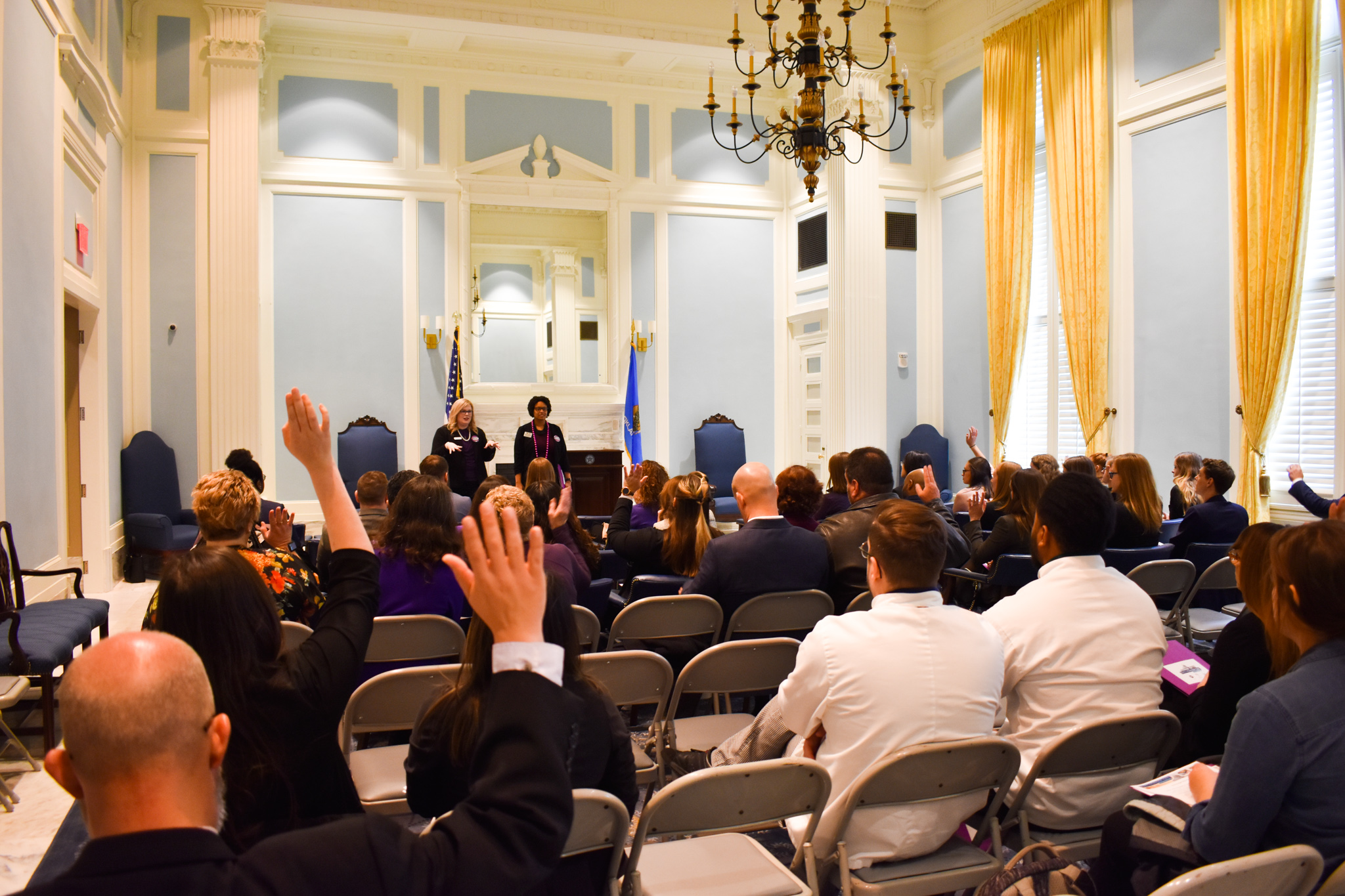By Jessica Dietrich, Hunger Free Oklahoma, Policy and Government Relations Manager
In my work advocating at the Oklahoma State Capitol over the past several years, one consistent question I receive is, “What do you actually do?” While I have my oversimplified, slightly-humorous answer of “I go to a lot of meetings,” the truth is not as complicated as you might think. In fact, anyone can be an effective advocate – as long as you have passion for an issue, dedication to communication, and a commitment to building relationships.
1. Passion For an Issue
The first part of being an advocate will likely be the easiest for most. We all have a passion for different issues, but honing that passion means committing yourself to learning more about that issue. Attend a training, whether you are the intended audience or not. Read an article from a reputable source, then read an article with a different point of view. Learn more about how other communities have approached your issue. You will not be able to learn all of the information about the issue, but don’t let that stop you on your path to becoming an advocate. Learning more about your issue is an ongoing process and one that should never end.
2. Dedication to Communication
The next part of the recipe for being an advocate, is typically the most intimidating for those new to advocacy. Do not let communicating about the issue with policymakers intimidate you. Elected officials are people, too. They have a desire to learn more about the issues impacting our community, and hearing from passionate Oklahomans like you is a key component of that process. There is no need to know everything about a subject, or all of the nuances of the legislative process, to have an impactful conversation with an elected official.
3. Commitment to Building Relationships
The final element of being an effective advocate is committing yourself to building relationships with policymakers. Besides communication, this is the area that frequently stops people in their path to becoming an advocate. Never spoken to your representative before? There is a first time for everything. Not sure who your representative is? There’s a wide variety of resources to help you:
If you have a smart phone, download the Oklahoma Legislative Guide app! I use this app when I’m on the go at the capitol as a quick reference guide to find legislator office numbers, names of key legislative staff, and names of committee members.
Once you know who your elected officials are, that is your opportunity to reach out to them and start to get to know them. A great starting place is to ask them what inspired them to run for office in the first place. You don’t need to always have a call to action for them. In fact, it is better not to. There is considerable value in getting to know them as a person.
Becoming an advocate can seem daunting at first, but by focusing on honing you passion, communication, and relationship building, you can successfully convert your passion into action.
For more information about Hunger Free Oklahoma’s advocacy efforts, contact Jessica Dietrich.
Successful Advocacy in Action: 2020 Anti-Hunger Day at the Capitol
On February 25, 2020, Hunger Free Oklahoma, the Regional Food Bank of Oklahoma, the Community Food Bank of Eastern Oklahoma, and other anti-hunger advocates participated in Anti-Hunger Day at the Capitol! More than 70 advocates met with Oklahoma legislators to communicate their passion for alleviating hunger in Oklahoma and to build stronger relationships with policy-makers. Want to advocate with us next year? Join Hunger Free Oklahoma’s mailing list!

